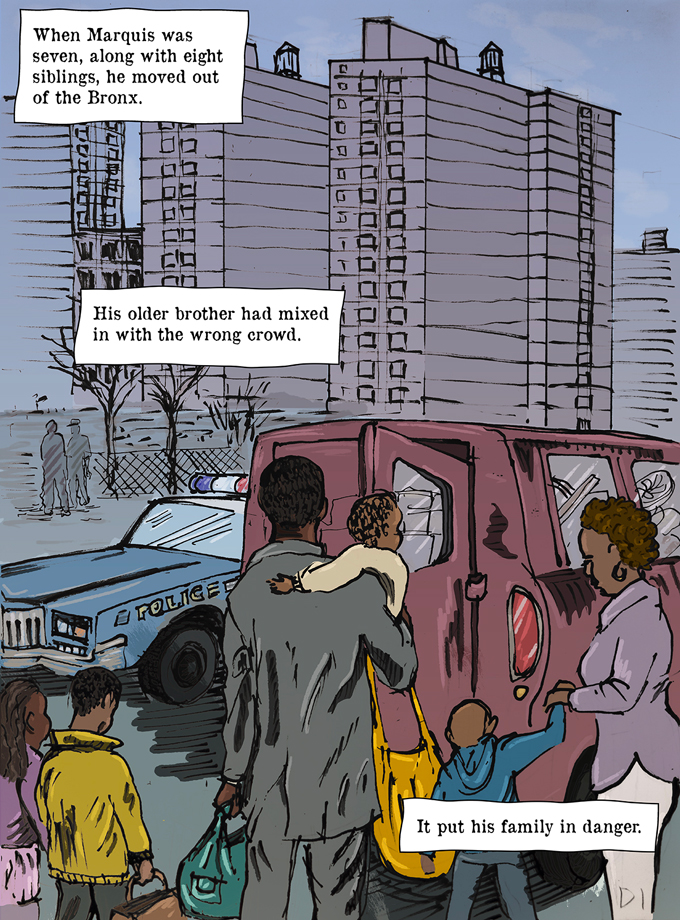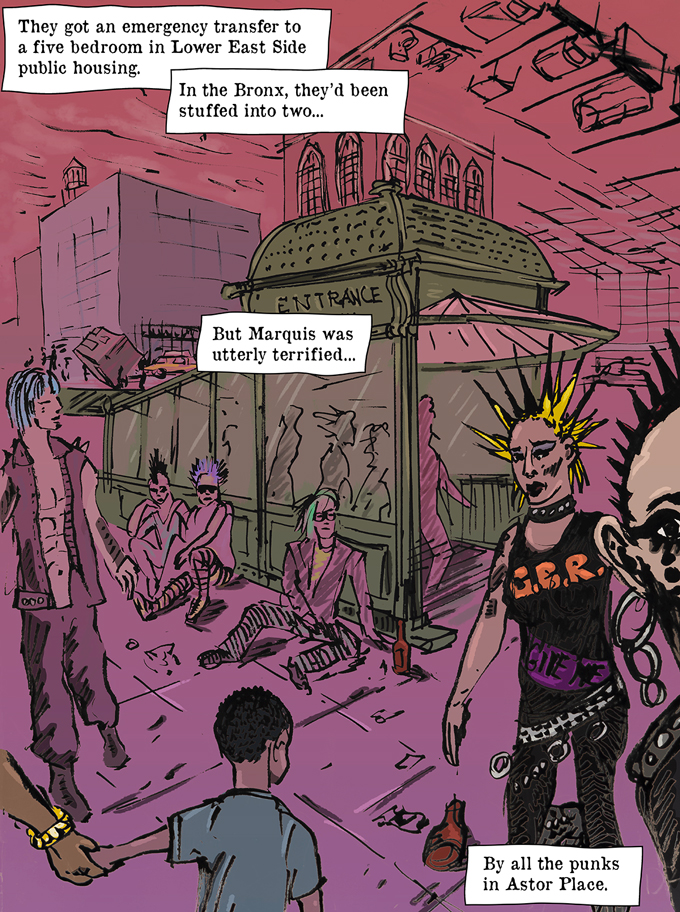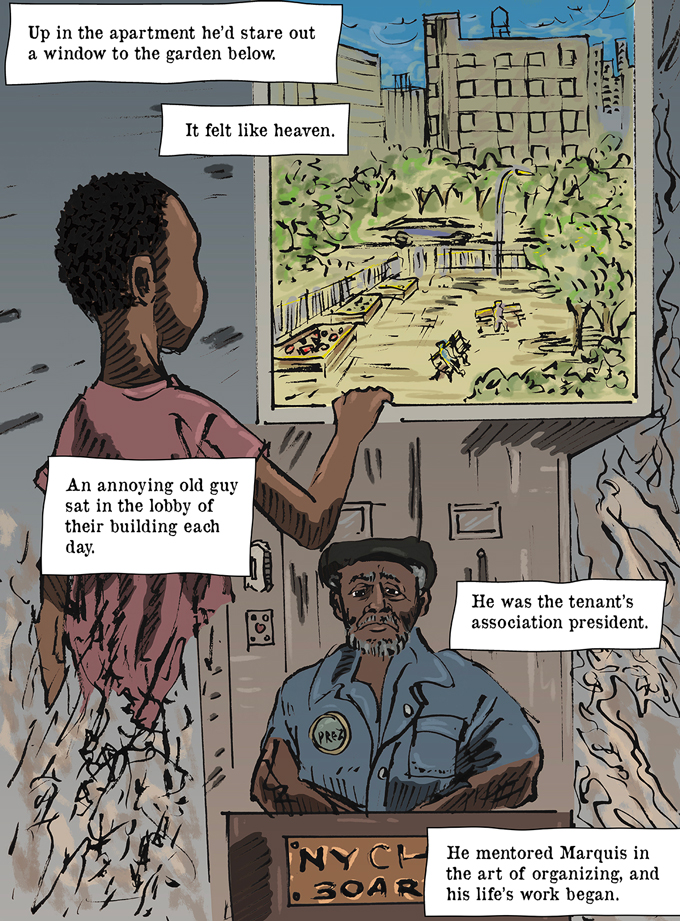
New York 2044: Marquis Jenkins
Reported from the imagination of Marquis Jenkins, community organizer and District Leader on the Lower East Side of Manhattan.
Scroll down to see Marquis’s real estate coming of age story in comic form.
NYCHA BEATS BEZOS ON ROBOTS LAWSUIT
Public Housing Incubator Retains Control of Cleaning Bot Patent
New York, NY – May 5, 2044 – In a David vs. Goliath court case, a public housing initiative in New York City has emerged victorious from a legal battle against Amazon Robotics. Project Helping Hands, a resident-led program that revolutionized—and many say, saved Section 9 public housing, has successfully defended its patent against the tech giant’s claims.
Read MoreTwenty years ago, the idea of public housing residents developing cutting-edge robotics to maintain their deteriorating dwellings would not have occurred to many. But beginning in 2028, state funded incubator programs began to train a new generation of young residents in engineering. Unused spaces in the projects were turned into maker labs, and Project Helping Hands was born from these labs. About seven years ago, just when section 9 housing was on its last legs due to chronic ballooning retrofitting and maintenance costs, the Helping Hands collective launched its first fully functional maintenance bot—a deceptively simple looking contraption that rolled down the halls cleaning public spaces in the buildings. Nicknamed HH Prince of Clean, It also checked in on residents, and could deliver food and medications as needed. The next year, it added elevator repaid to its repertoire. What set the bot apart was its low cost despite a high performance rating, and the class and racial equity incorporated into the design. Within two years, the bot was manufactured and distributed to public housing around the city. A year later, the partnership with Viennese housing meant significant expansion.
But their success story almost became a tragedy. Amazon Robotics challenged Project Helping Hands’ patent on the cleaning bots, leaving residents feeling like they were up against an unbeatable foe, especially considering the many small players Amazon Robots has been swallowing up in recent years as they compete with Apple and Google for a seamless smartlife experience. However, Judge Bragg broke their legal winning streak thanks to Helping Hand’s successful argument that their patent was filed as a niche application, specifically tailored to public housing—a field which Amazon has not previously dallied in. The niche application includes specifications for accessibility, safety and security, as well as maintenance and upkeep that are also specific to the midcentury buildings the residents inhabit.
Project Helping Hands has already made a remarkable impact. From their initial release, the robots tackled immediate maintenance needs that were too often unmet. Crime rates plummeted and unlike other crime bots which are so often perceived as hostile enforcers of inequity, residents accepted these machines into their community because they had been developed and programmed by their neighbors, and special precautions, including a stand-alone data network, were taken with the data collected. The improved living conditions has attracted new investment.
“They saw we had a good thing going, and they thought it should be theirs,” says Helping Hands co-founder Nira Kahn. “We showed them that they can’t take it. Nobody has the right to take our home away, and the same is true of our ideas.”
Marquis’s Story
Marquis’s real estate coming of age story in comic form, by Noah Fischer.



Marquis Jenkins is an advocate, strategist, community organizer and the District Leader for the 74th Assembly District Part A (Lower East Side of Manhattan). He was introduced to organizing at the age of seventeen when he ran for Resident Association President of the public housing development where he grew up. Since then he has worked as an organizer with Good Old Lower East Side, Inc. (GOLES), as a senior community organizer at the NAACP Legal Defense and Educational Fund, and as the Director of Organizing at WE ACT. He leads the Residents to Preserve Public (RPPH) group, a growing coalition of public housing resident leaders working to build a citywide campaign to preserve public housing, and is the Director of Organizing at Common Justice, an organization that builds transformative solutions to violence that can displace incarceration.
